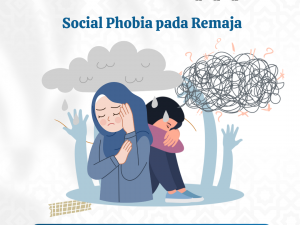

(Author: Sundari Mulyaningsih, S.SiT., M.Kes, Lecturer of D3 Midwifery Study Programme, Alma Ata University)
D3 Midwifery Study Programme of Alma Ata – As social creatures, humans can never live alone. Likewise, teenagers need interaction with friends and other people to reach maturity. What is important in this case is how they socialize, the community, and what are the effects of these associations on themselves, others, and the environment. Healthy relationships for teenagers are relationships that follow social ethics and are positive things. Some ways to develop healthy relationships are described below:
Teenagers’ awareness of religion
Religious awareness is an integral part of the aspects of adolescent development that must be developed optimally. Religious awareness is very necessary for adolescents to have a solid foundation for life, i.e., moral values, especially those on religious teaching, so that adolescents gain the maturity of a moral system that guides their behavior.
In everyday life, there are still many teenagers who commit crimes, because most teenagers lack understanding of religious norms. Therefore, teenagers must have religious awareness so as not to fall into unhealthy relationships.
Sense of comradeship
For adolescents to have good social relationships, the role of comradeship is crucial. Comradeship refers to an adolescent’s empathetic attitude towards peers, and how they interact with others in a friendship relationship. With comradeship, teenagers can avoid feelings of loneliness and stress, get emotional support, develop themselves, increase their sense of belonging, and help overcome trauma. This awareness of comradeship can make teenagers’ lives peacefully in society.
Selective in choosing friends
Selective in making friends is the process of choosing and establishing relationships with people who meet certain criteria as close friends or companions. Having positive and supportive friends can have a significant impact on one’s emotional and mental well-being.
For teenagers to avoid the influence of unhealthy behaviour, they must choose their friends. Even so, we don’t have to alienate bad friends, but rather keep in touch with them but don’t let them influence us, if necessary keep a distance from them and don’t get too close.
Spending Time with positive activities
Filling free time with positive activities keeps teenagers away from bad influences such as drugs, gang brawls, and free sex activities which are very dangerous.
Using spare time with various positive and entertaining activities has a positive impact on adolescents, as it can relieve boredom and pressure from school activities. Moreover, if teenagers spend their free time in activities that they like or according to their hobbies, they can improve their skills, imaginative power, and creativity.
Understand the boundaries between men and women
To avoid any unwanted things, teenagers should create a distance between themselves and the opposite sex. Some examples of boundaries between men and women include addressing friends of the opposite sex with a kind word, being friendly and making friends with the opposite sex with mutual respect and appreciation, wearing clothes that are appropriate to the situation and conditions, not sitting too close together, and not showing aurat.
Stabilising emotions
Teenagers will experience hormonal changes and physical development that can make them emotionally unstable. It can be a complete physical and physiological metamorphosis. The adolescence period is considered a period of “strom and stress”, and during this time adolescents have unstable emotions called heightened emotionality.
When teenagers have problems, they should not get mad. Teenagers must respond patiently and calmly to make themselves feel relieved. Teenagers can solve problems with good communication, not with anger/emotion.
Social etiquette for teenagers
Teenage social etiquette is the norms of good manners or guidelines for good behaviour in teenagers’ relationships. If you want to apply the traditional manners of politeness, then it is more difficult in treating your peers.
Some examples of teenage social ethics are always maintaining good manners, whether with peers, parents, or teachers wherever and whenever, and being simple, honest, always trying to protect the feelings of others, and being willing to help.





